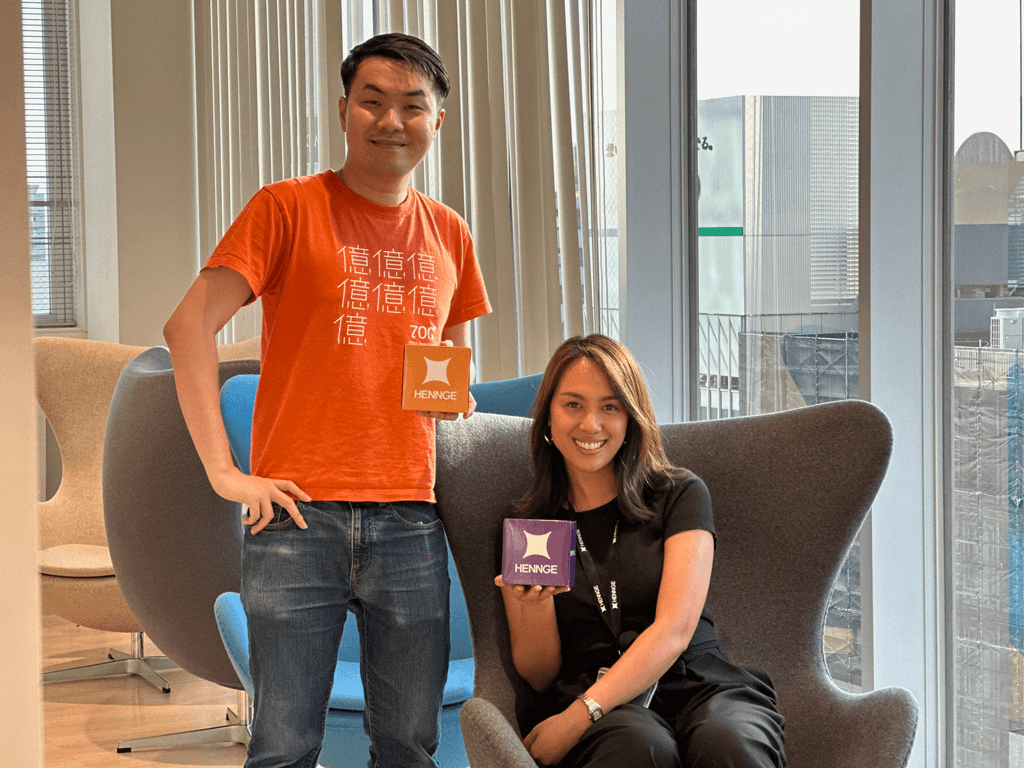
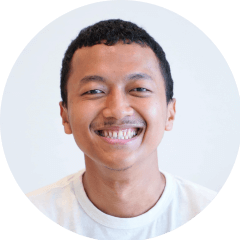
JAZMAN BARIZI
Published on Jun 26, 2024
So you’ve found the perfect internship or full-time position at HENNGE and brushed up your CV, but what’s next?
In this episode of Casual Talk interviews, we lift the lid on HENNGE’s hiring process for engineers and answer some common questions to firstly help applicants decide whether to apply, and secondly what to expect if they proceed.
Jazman Barizi (Jazz) and Sonam Choden from HENNGE’s Engineering Talent Acquisition (ETA) team are joined by Iskandar Setiadi, Division Manager of Cloud Product Development (CPRD) team, and Laine Takahashi, Tech Recruiter, to delve into the intricacies of HENNGE’s process for identifying and selecting top engineering talent. Along the way, we’ll cover exclusive insights and tips you won’t want to miss if you’re thinking of taking your first steps toward joining HENNGE.
Interviewees
First, let’s say hello to our interviewees:
Iskandar: Hi, I’m Iskandar Setiadi from Indonesia. I joined HENNGE about nine years ago in 2015. Before that, I was actually a 2014 intern in HENNGE’s Global Internship Program. Today I’m working as a software engineering division manager for cloud products.
Laine: Hello, my name is Laine Takahashi and I’m from the Philippines. I joined HENNGE almost six years ago in 2018 and now I’m leading HENNGE’s hiring for software engineering positions.
The Hiring Process
HENNGE aims to streamline its hiring process for engineers, making it transparent and accessible. The process begins with a coding challenge known as HENNGE’s Admission Challenge, followed by document submission, screening, and multiple interviews. This structured approach ensures candidates are suited for the roles they apply for, aligning with our values and technical requirements.
Application Flow
Initial Steps: Coding Challenge and Document Submission
- Coding Challenge Registration: Candidates start by registering their email online to receive a link to the coding challenge. This challenge tests their coding abilities with no time limit for completion.
- Document Submission: After completing the coding challenge, candidates submit their CV and cover letter. The HENNGE team reviews the coding scores and documents before deciding who moves forward.
Full-Time Positions:
- Casual interview: Candidates who pass the initial screening engage in a casual conversation.
- Interviews: Depending on the team, candidates are invited to attend two to three interviews before acceptance.
For Internships:
- Phone Screening: Following the coding challenge and document submission, candidates participate in a phone screening.
- Mentor Interview: Candidates then have one interview with potential mentors or team members.
- Batch Selection: Successful candidates choose their preferred internship batch.
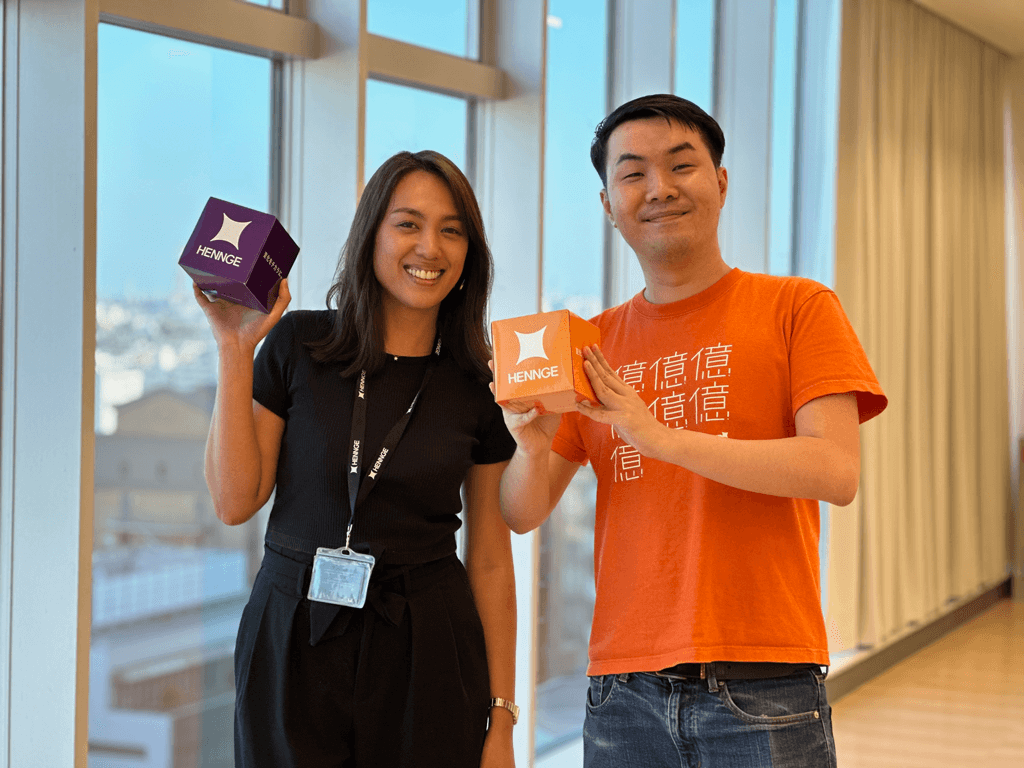
HENNGE’s Hiring Evolution
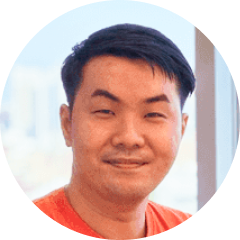
Iskandar: Initially, our hiring process lacked a standardized assessment of candidates’ technical abilities. We found that some candidates struggled to adapt to our technology stack and working style. Recognizing this, our CEO introduced an admission challenge in 2014 as a simple way to evaluate candidates’ coding skills and their familiarity with our product domains. Intended to take about two to three hours for strong candidates to complete, it became essential as the engineering team grew from 15 to nearly 50 members and the number of applicants surged from hundreds every year to thousands.
To manage this influx, HENNGE began requiring candidates to complete the coding challenge before their CVs and cover letters were reviewed, ensuring a balanced and efficient screening process. Over the years it has evolved in line with our products, but its purpose remains the same – to fairly gauge candidates’ proficiency and ensure they are a good fit for our technical requirements.
Tech Skills: Admission Challenge

Jazz: What should potential applicants expect for the coding challenge, and how do you evaluate their performance?

Iskandar: The challenge is tailored to specific roles, such as back-end or front-end engineering. The back-end challenge involves a short coding task, typically under 100 lines, along with research on multi-factor authentication (OTP). Candidates are not required to implement OTP from scratch, but demonstrating an understanding and ability to apply it is essential.
For front-end candidates, the challenge involves creating a single-page UI related to email functionality. I can’t give away too much here, but I can say that we focus on assessing candidates’ problem-solving skills, coding proficiency, and adherence to best practices. Of course, accuracy is important, but we also look for the conciseness and elegance of their solutions.

Jazz: How many people usually pass and what is a common mistake you see from applicants?

Iskandar: Typically, 70% to 80% of applicants get the solution correct, meaning their test cases produce the correct output. About 20% fail at this initial stage. Then, of the remaining candidates, around half make it through to screening. We look for concise solutions since the challenge is simple. If someone writes more than 200 lines, it’s often overly engineered, and those candidates might be screened out. Generally, if candidates follow best coding practices, their chances of passing to the next step are very high.
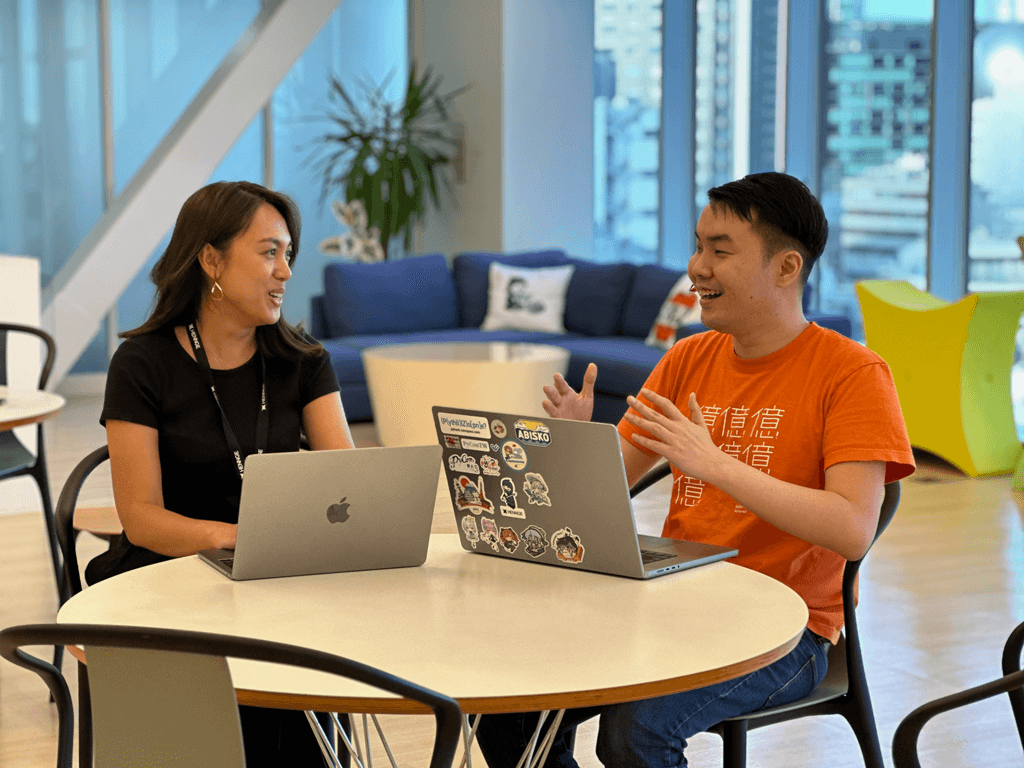
First Impressions: CVs & Cover Letters

Sonam: After the coding challenge, what criteria are you looking for during the document screening phase?

Laine: We review candidates’ CVs and cover letters to assess their qualifications and alignment with our company values. While technical skills are important, we also look for indications of communication abilities, motivation, and cultural fit. Candidates who can effectively convey their experiences and demonstrate a passion for our industry and company stand out during this phase.

Sonam: What specific things are you looking for on a candidate’s CV?

Iskandar: During screening, we apply two levels of checks. The first screener looks for relevant experience or competency, and the second screener assesses the depth of these qualifications. Sometimes a candidate has the right experience but lacks depth in certain areas, which can be hard to pinpoint precisely. We have limited resources and interview slots, so we need to be selective. If several candidates have high potential, we choose the best ones to interview that week. Having good skills is important, but we must prioritize the best fits.

Sonam: Can you shed light on some of the reasons applicants don’t pass?

Iskandar: For screeners, the cover letter is a high priority because we receive many candidates. We look for uniqueness that makes a candidate stand out. Nowadays, some candidates use AI to generate cover letters, which lack personality and an effort to research about the company and position. If a candidate shows genuine effort and knowledge about us, their chances of moving to the next step will be higher.

Jazz: Iskandar mentioned we receive thousands of applications. For those that complete and pass the coding challenge, do you read each cover letter?

Laine: Yes, we read each cover letter and CV. We have screeners for both back-end and front-end, plus Sonam and I from the Engineering Talent Acquisition (ETA) side. Over the past year, we’ve seen an increase in applications. For internships, the monthly average registrations are 850, with 150 submissions. For front-end, last year, we averaged 230 registrations with roughly 70 submissions monthly, but this year, it’s 530 registrations and 120 submissions per month. Back-end registrations also increased from 150 to 240 per month, with submissions rising from 60 to 85.

Jazz: Those are monthly numbers. So, on average, you read a hundred cover letters each month. That’s a lot!

Laine: Yes, we read each one because it’s important to check the content. We also send rejection emails individually. As the business expands, we are committed to growing the team strategically, prioritizing quality over quantity. We have limited openings for full-time positions, with two back-end and two front-end senior positions currently available. Our goal is to identify candidates who align with our company’s values and culture, in addition to assessing technical skills and experience.
Candidates who do not pass the coding challenge will receive their test results. For those applying for full-time positions who advance to the interview stage, we aim to provide specific feedback on why they are not moving forward. For internship candidates, we will specify at which stage they were unsuccessful (e.g., coding challenge, document screening, phone screening, or online interview). Due to the high volume of internship applications we receive daily, we may not be able to offer detailed feedback for every applicant.

Jazz: Pro tip – this would be a good time to remind readers to check out our earlier Casual Talk article on Crafting the Perfect Cover Letter!
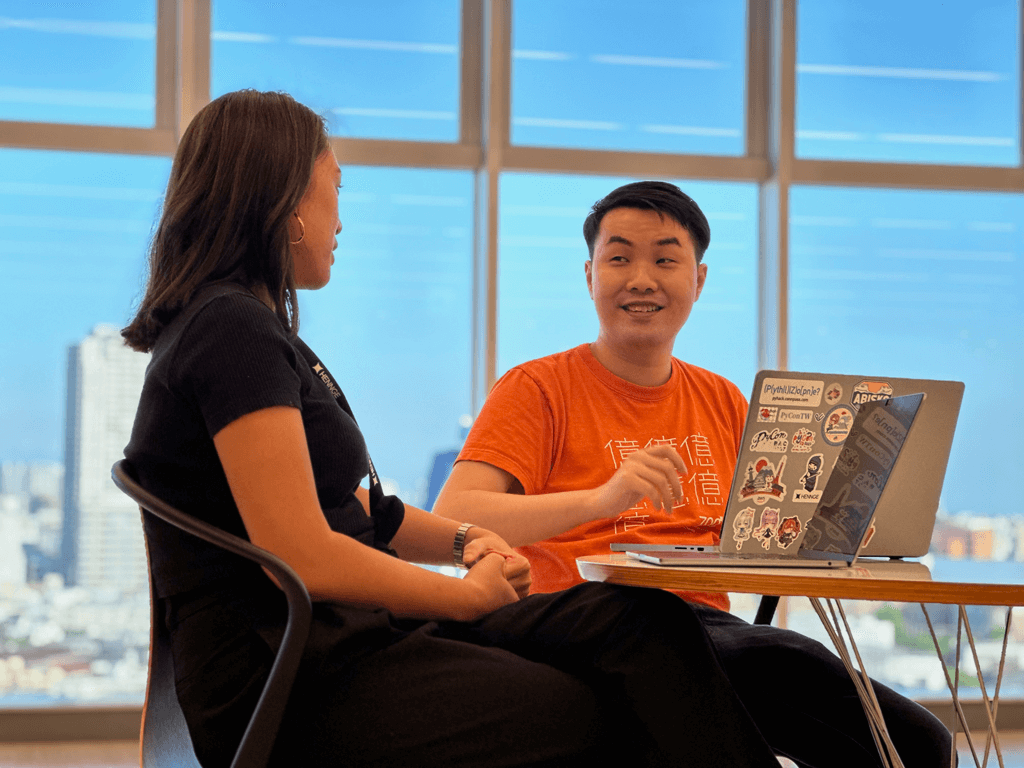
Communication & Culture: Inside the Interview

Sonam: And how about HENNGE’s interview process?

Iskandar: After passing the document screening, candidates undergo a series of interviews. The first is a casual interview with the ETA team, focusing on basic skills like communication and their motivation for applying. The first interview is with managers, including me, where we delve into their prior experience and technical skills. The second interview involves the specific team the candidate is likely to join. Here, we assess technical skills relevant to the team’s work and evaluate compatibility. Finally, the third interview is with our CEO, Ogura-san, who has his own checklist of criteria. For mid-career positions, there might be an additional interview if needed, but we generally follow this process for all applicants.
There’s no live coding during the interviews, but we will usually talk in broader terms about their previous coding experience. For example, how did they tackle a specific problem in that project and what did they learn?

Sonam: What factors influence hiring decisions?

Laine: Throughout these interviews, we evaluate candidates’ technical proficiency, previous experience and communication skills, and alignment with our company culture. We also assess their potential for growth and contribution to our team. Ultimately, we strive to select candidates who not only excel in their roles but also embody HENNGE’s values and ethos.

Jazz: So there is an emphasis on communication skills and cultural fit during the interview stage?

Iskandar: Absolutely. Technical skills are crucial, but communication and cultural fit are equally important. We aim to build diverse teams with individuals who can collaborate effectively and adapt to our dynamic work environment. Candidates who demonstrate strong communication skills, openness to change (it’s right there in our company name!), and a collaborative mindset are more likely to succeed at HENNGE.
Global Internship Program (GIP)

Jazz: Focusing on HENNGE’s Global Internship Program (GIP), what prompted the creation of this program?

Iskandar: The GIP was established with the goal of internationalizing our workforce and creating opportunities to exchange ideas with top talent from around the world, some of whom may go on to work with us full-time. It provides an opportunity for aspiring engineers to gain hands-on experience with our technology stack while adapting to the Japanese work culture. Additionally, it serves as a pathway for talent acquisition, with many interns transitioning to full-time roles at HENNGE.

Sonam: What are the key benefits and experiences offered to interns participating in the GIP?

Laine: Interns in the GIP receive comprehensive training in HENNGE’s technologies and work processes. They also benefit from exposure to Japanese culture and networking opportunities within the company. Additionally, HENNGE provides financial support for travel and living expenses during the internship period. Overall, the GIP offers a valuable learning experience and a pathway to potential employment with HENNGE.

Jazz: How does HENNGE assess interns’ performance and determine their eligibility for full-time roles?

Iskandar: Interns’ performance is evaluated based on their contributions to assigned tasks, their ability to adapt to our work environment, and their alignment with our company values. Successful interns may receive offers for full-time positions based on their performance and the company’s hiring needs. We prioritize candidates who demonstrate not only technical proficiency but also a strong work ethic, teamwork skills, and a passion for continuous learning.
Each year, we aim to have around 24 interns in our Global Internship Program. Typically, 8 to 12 of these interns show significant promise. We reach out to these individuals to gauge their interest in a full-time role, and usually, about half of them are at a stage in their lives where they wish to accept the offer. This means we have 4 to 6 new graduates or junior engineers joining us from the GIP annually. Impressively, about half of our current engineers have come through this program!

Laine: Yes, and some of them may have gone on to work for other companies or graduate school before coming back to join us as mid-career applicants, so the GIP is a really great entry point for people at different points in their life and career.
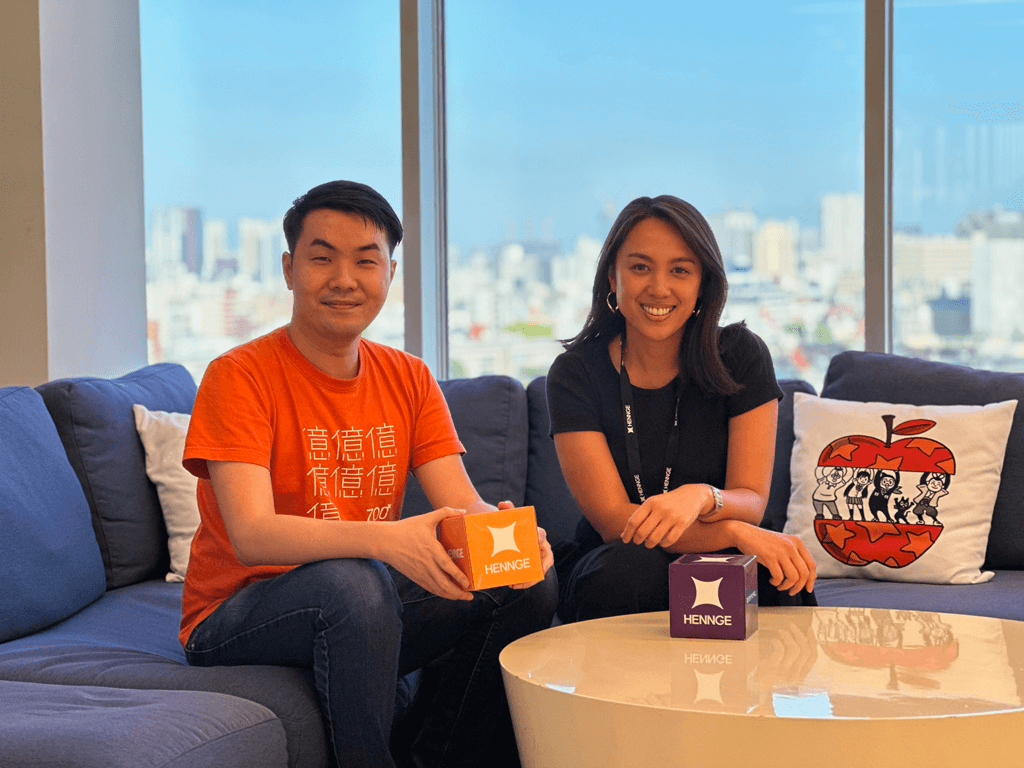
So whether you’re considering an internship or full-time position, HENNGE’s engineering hiring process reflects the company’s commitment to identifying top talent and fostering a diverse and inclusive work environment.
By emphasizing technical proficiency, communication skills, and cultural fit, we aim to build high-performing teams capable of driving innovation and success in the ever-evolving tech industry.
Explore our current opportunities at recruit.hennge.com/en/mid-career and https://recruit.hennge.com/en/gip/ for find out how you can be a part of our Global Internship Program.
We look forward to receiving your applications!

JAZMAN BARIZI
Published on Jun 26, 2024
Jazz: A lot of companies start by reviewing CVs and holding interviews, but HENNGE is different as the first step is a coding challenge. So let’s jump into the reasoning for this, as well as what kind of things you are looking for from applicants.